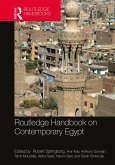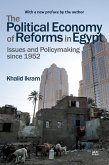Since the 1970s, the Egyptian state has embarked on a far-reaching and destabilizing project of economic liberalization, reneging on its commitments to social welfare. Despite widespread socioeconomic grievances stemming from these policies, class politics and battles over wealth redistribution have largely been sidelined from elite-led national politics. Instead, conflicts over identity have raged, as Islamist movements became increasingly prominent political players.
Classless Politics offers a counterintuitive account of the relationship between neoliberal economics and Islamist politics in Egypt that sheds new light on the worldwide trend of "more identity, less class." Hesham Sallam examines why Islamist movements have gained support at the expense of the left, even amid conflicts over the costs of economic reforms. Rather than highlighting the stagnancy of the left or the agility of Islamists, he pinpoints the historical legacies of authoritarian survival strategies. As the regime resorted to economic liberalization in the 1970s, it tacitly opened political space for Islamist movements to marginalize its leftist opponents. In the long run, this policy led to the fragmentation of opponents of economic reform, the increased salience of cultural conflicts within the left, and the restructuring of political life around questions of national and religious identity.
Historically rich and theoretically insightful, this book demonstrates how the participation of Islamist groups shapes the politics of neoliberal reform and addresses why economic liberalization since the 1970s has contributed to the surge in culture wars around the world today.
Classless Politics offers a counterintuitive account of the relationship between neoliberal economics and Islamist politics in Egypt that sheds new light on the worldwide trend of "more identity, less class." Hesham Sallam examines why Islamist movements have gained support at the expense of the left, even amid conflicts over the costs of economic reforms. Rather than highlighting the stagnancy of the left or the agility of Islamists, he pinpoints the historical legacies of authoritarian survival strategies. As the regime resorted to economic liberalization in the 1970s, it tacitly opened political space for Islamist movements to marginalize its leftist opponents. In the long run, this policy led to the fragmentation of opponents of economic reform, the increased salience of cultural conflicts within the left, and the restructuring of political life around questions of national and religious identity.
Historically rich and theoretically insightful, this book demonstrates how the participation of Islamist groups shapes the politics of neoliberal reform and addresses why economic liberalization since the 1970s has contributed to the surge in culture wars around the world today.
Dieser Download kann aus rechtlichen Gründen nur mit Rechnungsadresse in A, D ausgeliefert werden.









